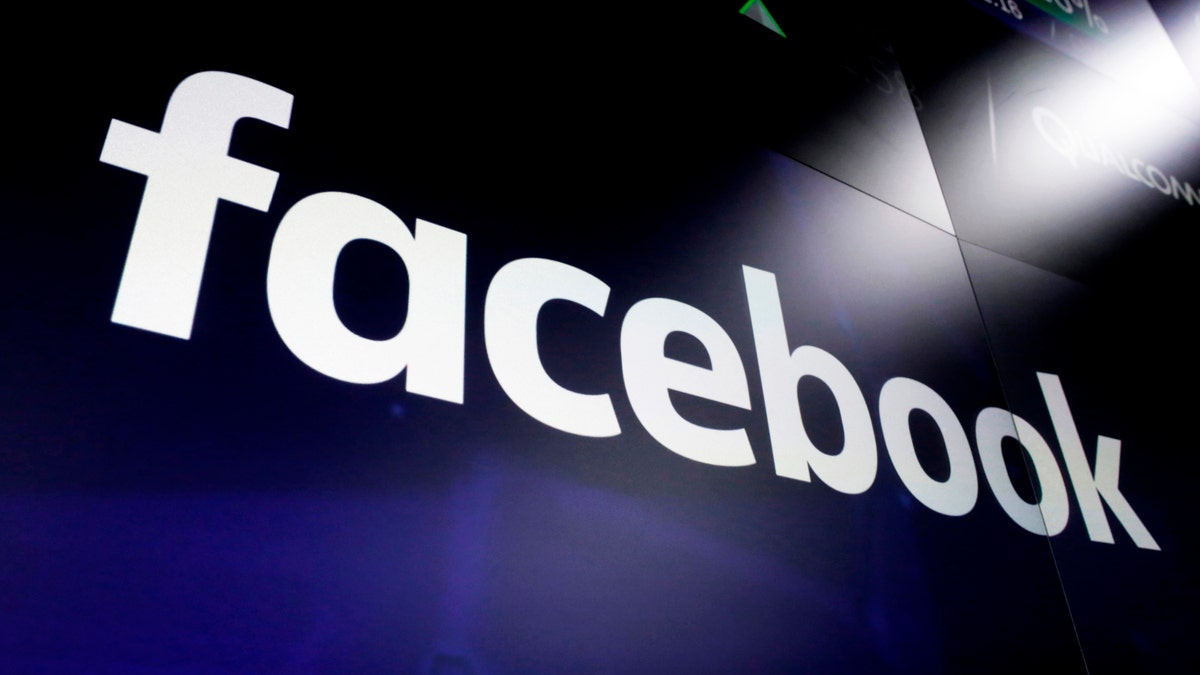
In this March 29, 2018, file photo the logo for social media giant Facebook, appears on screens at the Nasdaq MarketSite, in New York's Times Square. (AP Photo/Richard Drew, File)
Facebook Inc. set aside $3 billion for an expected fine from the Federal Trade Commission over privacy violations, cutting into the social-media giant’s profit even as its underlying business remained strong.
Facebook posted $15.08 billion in revenue, up 26% from $11.97 billion in the year-earlier period. Its profit dropped by more than half, to $2.43 billion in the first quarter, as the one-time reserve wiped out most of its income.
A multibillion-dollar penalty would likely be the largest ever against a major U.S. tech company by a U.S. regulator, and lands amid sharp debate on Capitol Hill about how best to hold Silicon Valley accountable for its abuses. It would also be the largest privacy-related fine in FTC history.
RUSSIA LAUNCHES HUGE 'DOOMSDAY' SUPER-SUB
Facebook agreed in 2012 not to collect personal data and share it without user consent, as part of a settlement with the FTC. The agency began probing last year whether Facebook had violated the terms of that earlier settlement when data of tens of millions of its users were transferred to Cambridge Analytica, a data firm that did work for the 2016 campaign of President Trump. The Wall Street Journal reported in February that FTC staff had discussed a fine of up to $5 billion.
The FTC investigation has run for more than a year, prompting complaints from some lawmakers. Facebook’s statements on Wednesday suggest the case could be winding up, though the FTC has not given any deadline. While Facebook estimated a settlement would range between $3 billion and $5 billion, it cautioned “there can be no assurance as to the timing or the terms of any final outcome.”
Jessica Rich, a former head of the FTC’s consumer protection bureau, said that the legal reserve wasn’t necessarily proof that a settlement was forthcoming. But she credited “enormous consumer outrage” for the size of the fine Facebook anticipates paying, noting the largest privacy settlement the agency has ever reached was $100 million. “The pressure is on the FTC to show that they can take serious action when warranted,” she said.
The possible fine would be eminently manageable for Facebook. The company reported holding more than $42 billion in cash and marketable securities.
AMAZON OPPOSES ANTI-LGBT TENNESSEE LEGISLATION AMID ACTIVIST PRESSURE
For Facebook, a settlement would bring a degree of resolution to an episode that kicked off an intense period of scrutiny around its data-sharing and privacy practices. Those issues in part drove Facebook Chief Executive Officer Mark Zuckerberg last month to unveil a major shift to private and ephemeral messaging.
Despite the turmoil, Wednesday’s results show a business that continues to hum.
Following the company’s first-quarter earnings report, Facebook stock rose about 8% in after-hours trading. Before the close of trading on Wednesday, the company’s stock had risen about 35% year-to-date.
Facebook’s results follow similarly strong quarterly numbers for social-media peers Twitter Inc. and Snap Inc., and bode well for fellow online-ad giant Alphabet Inc., the parent company of Google. Alphabet reports earnings on Monday.
Excluding the reserve for the FTC settlement, Facebook’s operating margin fell to 42%—a stellar number for virtually any business but nonetheless a step down from the 46% it reported a year earlier, as costs rose to $8.76 billion from $6.52 billion. Facebook has been warning that its margins will decline as a result of its increased investment in moderating user-generated content.
MACRON, ARDEN SEEK PLEDGE TO PURGE EXTREMISM FROM SOCIAL MEDIA
Mr. Zuckerberg said on an earnings call that the company was rolling out encrypted messaging more slowly than it would have a few years ago, as “part of our new approach of trying to be more proactive about social issues.” He said he would reveal more details about Facebook’s business strategy around encrypted messaging in the coming weeks, but “I don’t think in the next couple of years this is going to be a major driver.”
Click here for more from The Wall Street Journal, where this story was first published.
